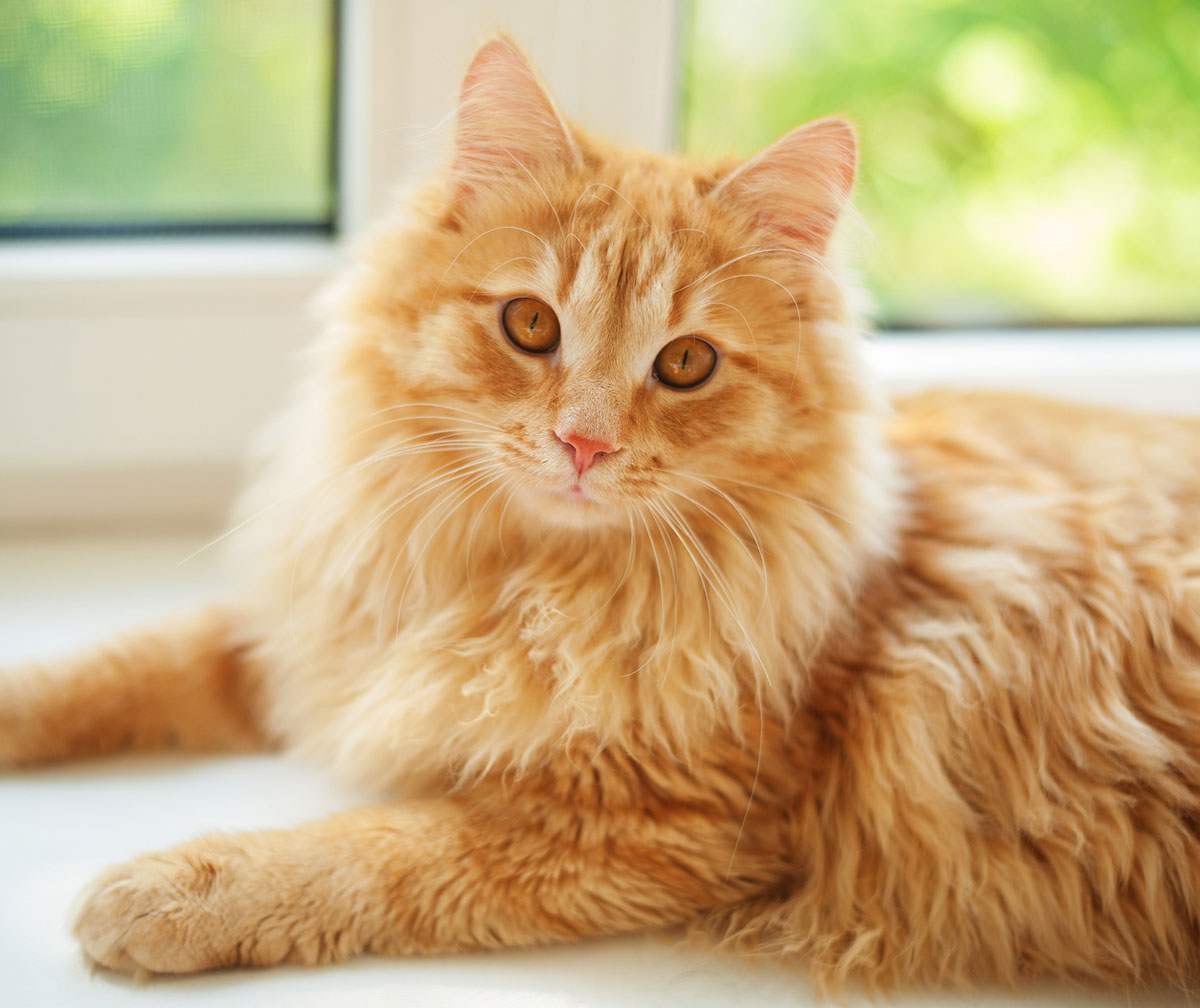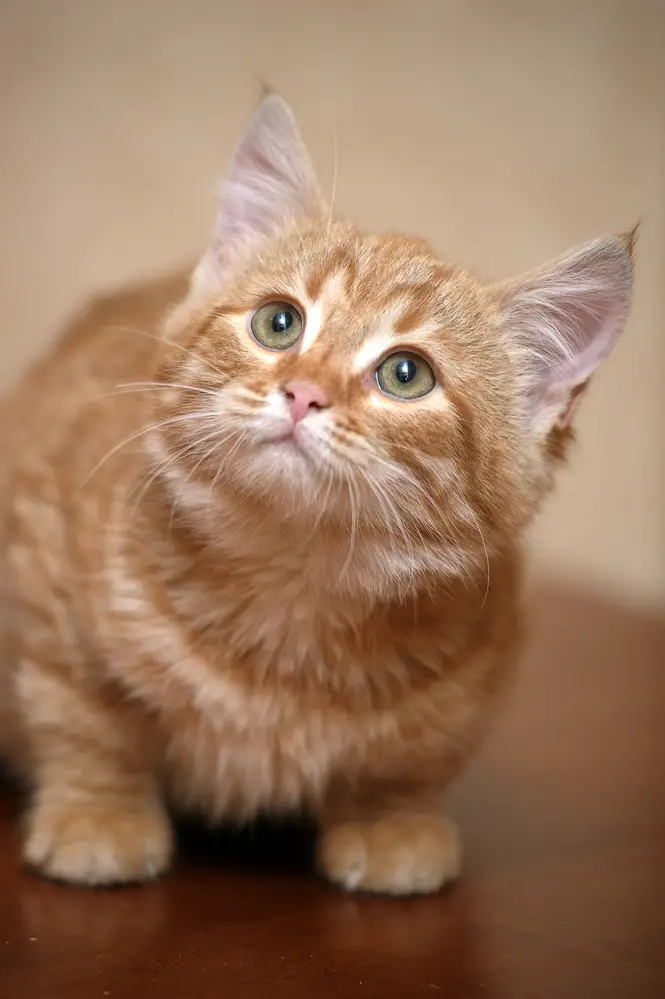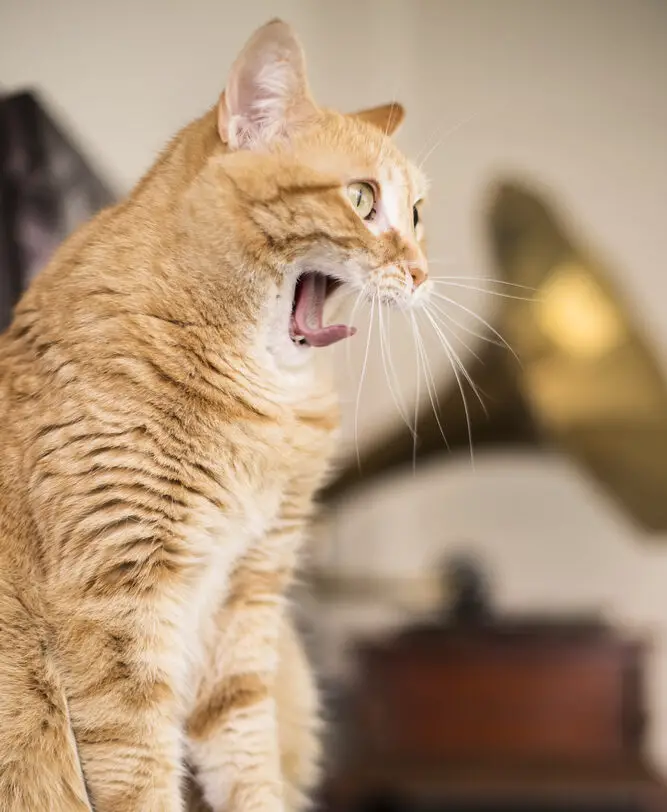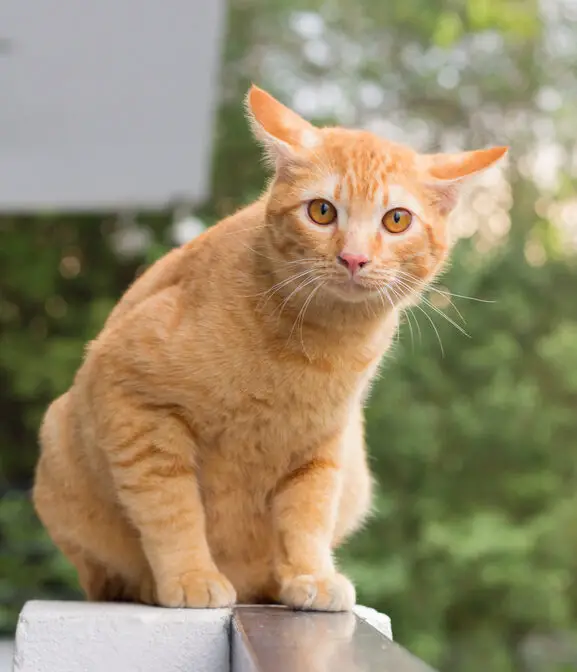Is My Cat Retarded? Here’s What The Experts Say
As a long-time cat owner, I know that felines have their quirks. But at some point, I also wondered, is my cat retarded?
While it may sound funny at first, it’s actually a great question to explore. It’s interesting to know whether cats can have mental disorders like humans do.

In this post, I will share my knowledge based on conversations with my pet’s veterinarian and my research. Read on to learn more about this topic and see if any symptoms are present in your cat.
How do I know if my cat is retarded?
According to a study by Dr. Danielle Gunn-Moore, cats can have a form of mental retardation. However, it’s not the same as observed with humans.
Felines with mental retardation are those with lower cognitive abilities than their healthy counterparts. This condition is called cognitive dysfunction syndrome or CDS.
CDS can cause unusual behavior that some pet owners view as ‘retarded’. However, it’s also important to note that cognitive dysfunction syndrome is mainly observed in senior cats at around 11 years old.
Aside from that, CDS progresses and becomes prominently worse when an affected cat turns 15 years old. But since there are no IQ tests for pets, it’s challenging to identify whether a cat indeed has this condition.
Nevertheless, cats born with anatomical defects can also have a similar mental disability. Veterinarians and animal neurologists can help identify whether your cat has this syndrome or not.
But just because your cat behaves oddly doesn’t necessarily mean it has retardation. Some cats have more unique personalities than others but are perfectly healthy.
Also, senior and very old cats are expected to exhibit cognitive decline. It’s part of their old age and weakening cognitive abilities.
Overall, when talking about retardation in cats, experts based their assessment on physical anomalies. It’s because retardation isn’t just about mental abilities but also general health.
Health conditions that can cause retardation in cats
Many health conditions can affect your cat’s mental capacity. Felines with the following conditions often have mental and physical inabilities:
Cancer
Cancer can affect your pet’s brain functions, which can lead to behavior similar to animals with cognitive disabilities. You’ll notice your cancer-stricken cat exhibiting unusual behavior, with some becoming aggressive.
Take note that cancer affecting the feline’s brain will have a more serious effect on the animal’s cognition. Over time, your pet will start to exhibit signs of retardation.

Depending on the type of cancer and its severity, this condition may or may not be curable. It’s essential to involve your pet’s veterinarian to know the course of treatment and the survival rate of your cat.
In many cases, cats will regain their normal behavior after being treated for cancer. However, some may continue to behave erratically as a side effect of their medications.
Feline hyperesthesia
Feline hyperesthesia makes a cat’s skin extremely sensitive to the touch. This may trigger the cat to react aggressively, even to the slightest physical stimuli.
Also called ‘rolling skin syndrome’, hyperesthesia will visibly cause the feline to twitch. This is due to uncontrollable muscle contractions.
Along with the changes in its physique, a cat with hyperesthesia will also experience behavioral symptoms. A once cuddly kitty may start to become aggressive when touched.
Overall, hyperesthesia is still poorly understood in the veterinary world. Its cause still begs for further studies, and a cure remains elusive.
Infections
Infections of any kind will affect your cat’s behavior. But once the infection is treated, your kitty will return to its normal self.
To confirm whether your cat has a mental disability, the vet will conduct a thorough histopathology exam. This is to confirm if something in your cat’s biochemistry has changed, which may indicate a mental condition.
Aside from that, you should know that some mental conditions in felines are genetic. So if your kitty is predisposed to cognitive issues, it’s more likely to develop mental problems earlier than most cats.
Cerebellar hypoplasia
Also called the ‘wobbly cat syndrome’, cerebellar hypoplasia is often a genetic defect. It causes incoordination in the feline’s movement and severe balance issues.
The good thing is that cats with cerebellar hypoplasia (CH) aren’t in pain. They just have experience trouble going around aside from their higher risk of getting injured due to lack of balance.
Moreover, this condition is because the cat’s brain didn’t develop properly. Nevertheless, cats with this problem can still live long and normal lives.
Aside from that, felines with CH aren’t necessarily aggressive or mentally incapacitated. Most of them have the same instincts and behavior as other cats.

How will I know if my cat has special needs?
Your cat may have special needs if born with physical and mental disabilities. It’s often visible, especially when the kitty doesn’t move as normal felines do.
Also, the vet can diagnose any underlying conditions that may indicate your pet’s lifelong health problem. This may or may not require long-term medication and extra care on the part of their owners.
How can I tell if my cat has autism?
There’s no specific test actually to determine whether cats can have autism or not. However, most felines will exhibit behavior that’s quite similar to autism symptoms among humans.
These are pacing, obsessive grooming, sucking on fabric, and more. Nevertheless, this behavior is considered normal and part of a feline’s instincts.
After all, cats are weird beings. They can have a variety of unusual behaviors that are not typically a cause of concern.
Is my cat smart or dumb?
Like humans, cats have varying intelligence levels. However, there’s no definitive way to determine whether your pet is ‘dumb’ or smart.
Again, there’s no IQ test for felines. But if your kitty can perform a few tricks that others won’t, maybe it’s safe to say you have one smart pet.
But if your cat doesn’t bother with all your training efforts, it just means you have a typical cat. In most cases, cats aren’t the type to please their owners.
Can cats have Down syndrome?
Despite the buzz on the internet, cats don’t develop Down syndrome. Some may be born with oddly shaped ears and eyes similar to Down syndrome, but it’s a whole new condition among felines.
Most of the time, cats with Down-syndrome looking features have congenital disabilities. Some may have mental disabilities, while others are totally fine, aside from their funny appearance.

Conclusion
So is my cat retarded? I think the best person to answer this is your pet’s veterinarian.
Each cat is different, and some may be quirkier than others. Still, it doesn’t mean that there’s something wrong with them.
Regardless if your cat has a defect or not, it doesn’t erase the fact that they can be great pets. With proper care and love, even felines with special needs can bring so much joy to your home.
